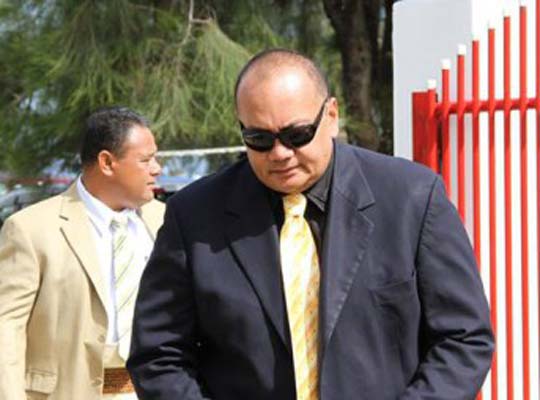
Pesi Fonua
NUKU’ALOFA (Matangi Tonga/ Pacific Media Watch): The Tongan Parliament has rushed through two new Communications Bills to establish a new regulatory body that will have powers to block selected internet content to internet users in Tonga.
The House unanimously passed the Communications (Amendment) Bill and the Communications Commission Bill 2015 after a third reading on Tuesday.
The two Bills, proposed by Communications Minister Siaosi Sovaleni were vital for the development of Tonga’s communications industry.
The speed with which the two bills were debated and passed was astounding, considering that some of the members had not seen or read the Bills until they arrived in Parliament on Monday morning.
Sovaleni, who is also the Acting Prime Minister, convinced the House of the urgency to pass the Bills. He pointed out that the 15-year-old Communications Act 2000 needed to be updated to be in line with advances in communications technology.
He told the House that Tonga currently had 11 FM radio stations, four television stations, and one AM radio station, and there was fierce competition in this area.
Infringement of individual rights
However, there are new clauses that could be considered infringement of individual rights. But Sovaleni said the clauses in question are there to protect children from misusing the internet.
The clauses are;
Clause 106 – Take down Notices. Under this clause anyone may report to the ministry/commission that a website or internet connection is disseminating information that is not good for the community, and the commission then would have the authority to check it out and could “take down the website”.
Clause 107 – Opt Out Filtering. If the internet user informs the commission to disconnect the “mandatory filtering” because there are no children in the home, then Hon. Sovaleni said that through “negotiation” the mandatory filtering could be disconnected.
Clause 108 – Mandatory Filtering. Sovaleni explained that under this clause, the commission could authorise the Tonga Communications Corporation or Digicel to block the accessibility of certain websites “all for the sake of protecting our children.” But the Mandatory Filtering mechanism could be disconnected.
Telephone privacy
Lord Vaea queried if the Ministry of Communications had the right to tap into private telephone communications, as do the police and FBI, if they disagree with the behaviour of certain groups or individuals in the community.
The Minister of Justice, Hon. Vuna Fa’otusia explained that under such circumstances as raised by the member, the two factors that have to be taken into consideration are “Invasion of Privacy and National Security”.
He said that the final decision would be on what is most important for the country,“ the privacy of the individual or the security of the country".
A new commission
The Communications Commission Bill 2015 would enable a new independent body, the Communications Commission to be formed to preside over the operations of the communications industry; a task that is currently being carried out by the Ministry of Communications.
The minister likened the current situation to that of government sending a team to a rugby match to be refereed by its own referee.
An appointments committee made up of the Minister, an ICT expert and a representative of the industry consumers will be responsible for appointing the members of the Communications Commission.
The commission will have four members, a chairperson, a deputy chairperson, an ICT expert, and a selected member. Members of the commission shall be approved by the Minister with the consent of Cabinet. Civil servants and people who hold elected office in Tonga are not eligible to be appointed to the commission.
The text of the two bills are not yet available on the Tonga government websites.
This work is licensed under a Creative Commons Attribution-NonCommercial 3.0 New Zealand Licence.




